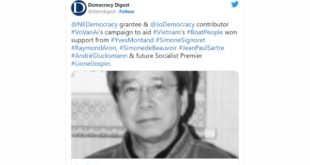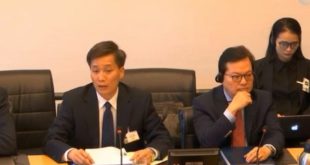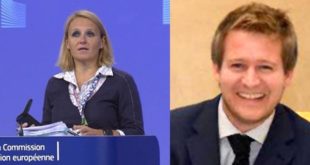Hanoi, 30 Aug 2006 (dpa) – Newly freed Vietnamese internet dissident Pham Hong Son vowed hours after his release Wednesday that he would continue to call for free elections in communist-ruled Vietnam despite remaining under house arrest.
“I will speak and exchange opinions freely and openly,” Son, 37, told Deutsche Presse-Agentur dpa by telephone Wednesday. “I am a person who wants to see Vietnam have a free political system.”
Son was freed Wednesday in a general government amnesty after intense lobbying by the US and European diplomats. He will remain under house arrest for three years, but said he has no regrets about the pro-democracy internet postings that led to his imprisonment and denied he had broken any laws.
“Everything I have done, I feel no regret,” Son said. “I just regret that I didn’t do more before my arrest.”
A physician and marketing director for a pharmaceutical company, Son became Vietnam’s first “cyber-dissidents” when he was arrested in 2002 after corresponding with Vietnamese exiles abroad and also translating and posting on a Vietnamese-language website a US State Department essay titled “What Is Democracy”.
He was convicted of espionage and sentenced to 13 years in prison, later reduced to five. Diplomats and human rights groups have been calling for his release, saying his conviction on his public advocacy for the Communist Party to allow free, multi-party elections.
The US praised Son’s release, along with other “prisoners of concern,” Ma Van Bay, a Protestant pastor and member of the Hmong ethnic minority, and Y Oal Nie, an ethnic Ede tribesman convicted of “weakening national solidarity” in the troubled Central Highlands region.
“This is a very good thing for Vietnam,” an embassy spokeswoman said. “These releases will be widely welcomed as a move consistent with trends within Vietnamese society toward a spirit of greater openness and debate.”
A Vietnamese exile group in Paris, the Vietnam Committee on Human Rights, also welcomed the dissidents’ release but claimed Vietnam still has more than 300 lower-profile political prisoners.
“This piecemeal amnesty is merely a propaganda exercise,” the committee president Vo Van Ai said, noting Hanoi released Son as it prepares to host world leaders for the Asia-Pacific Economic Cooperation (APEC) summit in November.
“In reality, Vietnam is increasing controls and legislation against dissidents every day,” Ai said. “Hundreds of political and religious prisoners still languish in Vietnam’s prisons and camps.”
Ai cited the cases of Thich Huyen Quyen, patriarch of the banned Unified Buddhist Church of Vietnam, and his deputy, Thich Quang Do, whom he said are under virtual house arrest in their pagodas.
Vietnam is also still imprisoning Nguyen Vu Binh, 37, a former writer for an official Communist Party publication sentenced in 2003 to seven years for espionage after found to have contacted “reactionary” overseas organizations and submitting testimony to the US Congress on Vietnam’s human rights situation.
Earlier this month, Vietnamese police re-arrested a recently released dissident, Truong Quoc Huy, 25, from an internet café where he was chatting online. His whereabouts remain unknown.
 Quê Me Quê Me: Action for democracy in Vietnam & Vietnam Committee on Human Rights
Quê Me Quê Me: Action for democracy in Vietnam & Vietnam Committee on Human Rights




